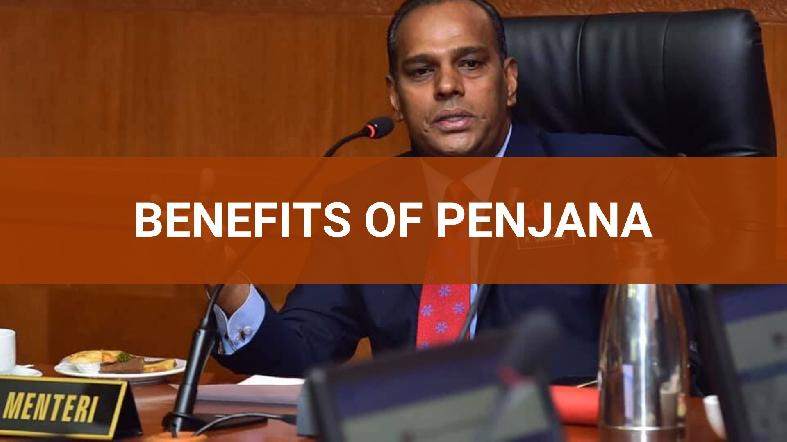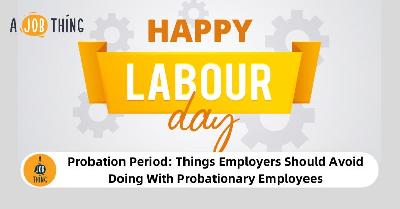
Human Resources Minister Explains PENJANA Benefits
Create Job Description Using AI
Write appealing job descriptions for any job opening to attract the most qualifield and suitable candidates. FOR FREE.
try now
As Malaysia slowly reopens the economy, the government is taking measures to address concerns about job security and job opportunities for the unemployed. Human Resources Minister Datuk Seri M. Saravanan explains the benefits of the short-term Economic Recovery Plan known as PENJANA.
Question: The Department of Statistics has said that over 860,000 Malaysians would be unemployed by the end of 2020. How many additional jobs does PENJANA expect to save?
Answer: The Wage Subsidy Programme (WSP) will save 2.7 million jobs for Malaysians. This is especially among small and medium enterprises (SME) that were forbidden from operating during the Conditional Movement Control Order (CMCO) such as tourism-related businesses.
The WSP, which is under the Social Security Organisation (Socso), seeks to help businesses keep their workers on the payroll and relieve their cash flow. Up to 8 June 2020, the Employment Retention Programme (ERP) applications were submitted by 37,435 employers and 335,933 employees. Meanwhile, the WSP applications involved 309,410 employers and 2,509,916 employees.
We are also looking at opportunities such as creating more platforms for the gig economy. We have surveyed the exponential growth of the gig economy in the last three months. For the next year or two or at least until a vaccine for Covid-19 is found, the gig economy will take over as ‘the economy’.
Q: Other than retaining workers, how is the ministry helping the unemployed, especially those who have lost their jobs in the past three months due to the pandemic?
A: Prime Minister, Muhyiddin Yassin has introduced incentives, such as special training programmes under the Human Resource Development Fund (HRDF), where those who lost their jobs can reskill, upskill or cross-kill themselves and enter different sectors.
The ministry is also finding ways to create jobs through the SOCSO-managed Hiring Incentive Programme. The programme aims to provide 300,000 jobs and employers are given direct cash incentives if they hire local workers including apprentices.
The programme is for those recruiting workers who are below and above 40 years of age and those with special needs.

Many Malaysians lost their jobs in the first quarter of 2020 due to the pandemic.
Q: School-leavers and fresh graduates may find it difficult to find jobs right now. Are there initiatives in PENJANA that would help them?
A: Through PENJANA, the government emphasis training in terms of reskilling and upskilling of Malaysians to enhance the employability of the unemployed, especially fresh graduates and school-leavers.
This is made possible through collaborations with various ministries and agencies, including HRDF. The programmes are expected to benefit some 200,000 unemployed workers and youths.
The skilled Malaysian workers produced from these initiatives coupled with other programmes that strengthen businesses in Malaysia as outlined under PENJANA, are also expected to generate more opportunities in the long run.
Initiatives such as the Global Online Workforce (Glow) programme and the social security coverage for gig workers under Socso's Self-Employment Social Security Scheme are also among other efforts to create jobs in Malaysia.
Currently, the ministry is trying to educate people on this as many are still confused between the gig economy and ‘self-employed’.
If two people sell food in front of their homes, but one of them brings their business to an online platform, that trader is automatically a part of the gig economy and is entitled to coverage such as the Employment Injury Scheme (EIS).
The government has also produced a matching grant up to RM50 million for gig economy platforms that contribute to the EIS through PENJANA.
Q: Will the WSP be expanded to cover those who earn above RM4,000 and companies that employ more than 200 workers?
A: The finance minister will decide on the expansion of the WSP to employers retaining those earning RM4,000 or more.
The human resources ministry will not extend the WSP to companies with over 200 workers as it does not want people to take advantage of this as some of the industries can sustain themselves. There can be no appeals on this as the government has made a policy decision here.
Countries such as Canada and Singapore are able to offer large companies these incentives but their taxation system is not the same as Malaysia.

If someone is working from home and had an injury, it is considered as an injury at the workplace.
Q: Will the ministry look into covering injuries for those who work from home?
A: It is decided that as long as one is working at home, their workplace is considered their home and the time of work covers their work hours.
The ministry is also looking at studying the Employment Insurance System Act of 2017 to cater for changes and widen the scope in light of current challenges.
Source: New Straits Times
Are You Short on Staff? Reach four millions of job seekers on Maukerja, Ricebowl, LinkedIn, and more when you post a job on AJobThing.com Register today!





